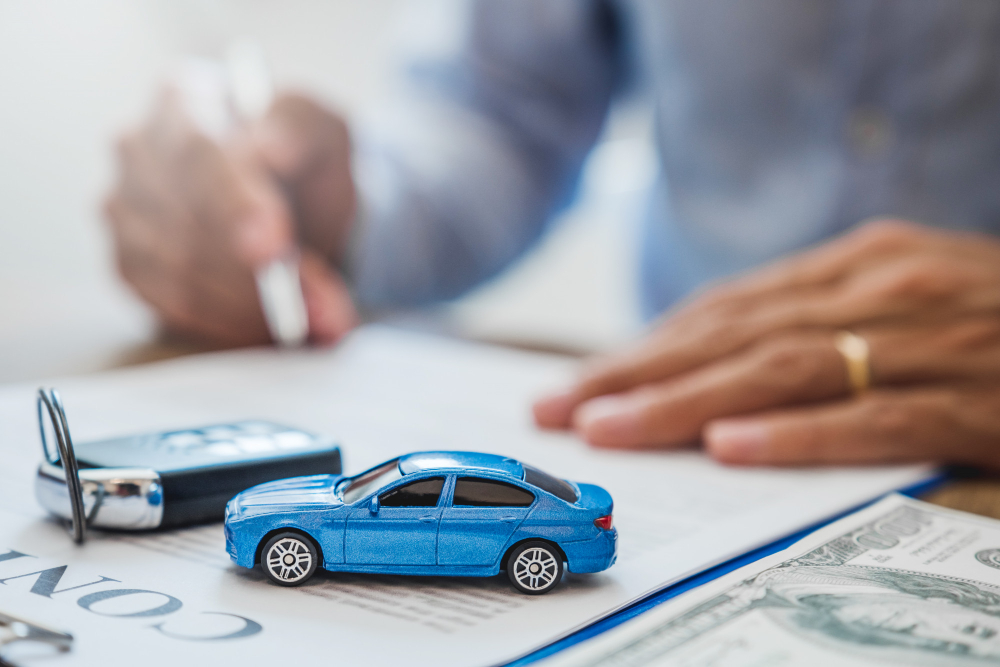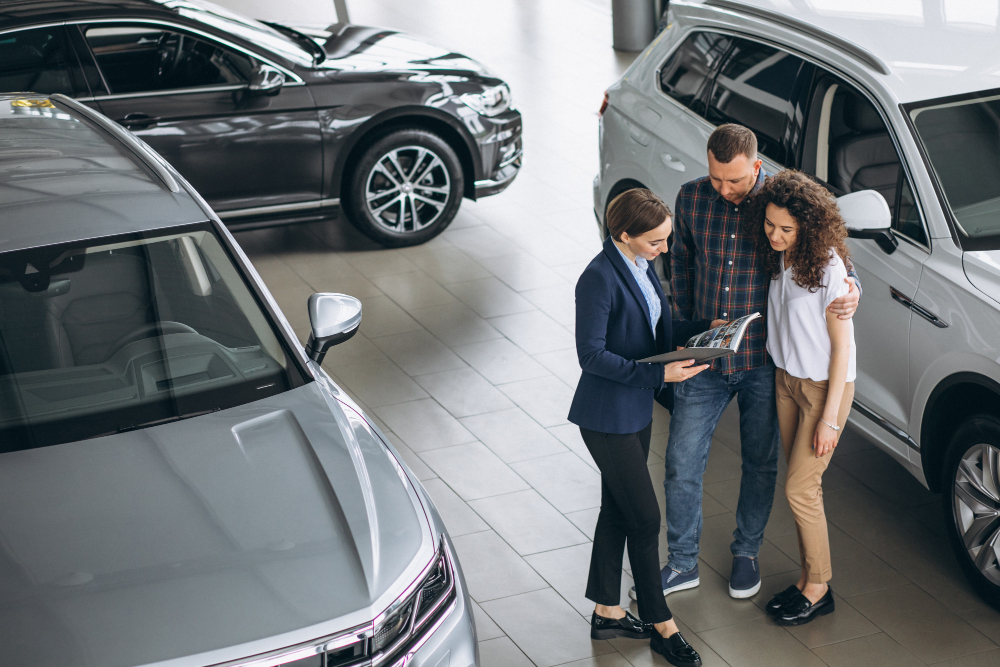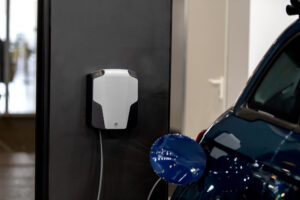When buying a car, an important decision is whether to purchase a new vehicle or go for a used one. Both options come with their own advantages and disadvantages.
However, one factor that often goes unnoticed is the impact of depreciation on the car’s financial value.
This article will examine the financial implications of buying new vs second hand cars and explore the factors to consider when choosing.
So, if you’re currently in the market for a brand-new vehicle or contemplating a used one, keep reading to gain insights into the financial implications of buying new vs second hand cars.
New Vehicle

Purchasing a brand new car undoubtedly holds its allure, thanks to several advantages:
- Reliability and Warranty: Brand new cars come in impeccable condition, without wear and tear. They also come with manufacturer warranties, providing reassurance and safeguarding against potential mechanical issues.
- Advanced Features and Technology: New vehicles often boast the latest technological advancements, cutting-edge safety features, and enhanced fuel efficiency. This makes them particularly appealing to those who value state-of-the-art innovations.
- Customization Options: Opting for a new car allows you to select the specific model, color, and optional features that align with your preferences.
However, it’s essential to consider the potential drawbacks of purchasing a new car as well:
- Higher Cost: New vehicles generally come with a higher price tag when compared to used cars. Additionally, expenses such as taxes, registration fees, and increased insurance premiums contribute to the overall cost of ownership.
- Depreciation: One of the significant financial implications of buying a new car is the rapid depreciation that occurs during the initial years of ownership. The moment you drive a new car off the dealership lot, its value depreciates considerably, potentially leading to a substantial loss if you sell it soon.
Furthermore, it’s worth noting that many individuals choose to finance their new cars through new car loans, allowing them to spread out the cost over a set period while making monthly payments towards the purchase.
Used Vehicle

Opting for a second hand car also presents its unique advantages and considerations. Let’s delve into them below:
- Affordability: Second hand cars generally offer a more budget-friendly option compared to their new counterparts. They come with a lower price tag, making them accessible to more buyers.
- Depreciation Benefits: Unlike new cars, used vehicles have already undergone most of their depreciation. This means you won’t face the same extent of value loss as you would with a new car.
- Lower Insurance Costs: Insurance premiums for used cars are typically lower since the vehicle’s overall value is lower compared to a new one.
However, there are a few factors to consider when purchasing a used car:
- Condition and Maintenance: Second hand cars may require higher maintenance or potential repair costs due to wear and tear. It is crucial to thoroughly inspect the vehicle’s condition and consider its service history.
- Limited Warranty: Second hand cars may not offer the same level of warranty coverage as brand new cars. Consequently, you may be responsible for any repairs or issues that arise after the purchase.
Buying a New Car vs Used: Pros and Cons

When deciding whether to buy a new car or a used car, it requires carefully considering the advantages and disadvantages associated with each option. Let’s examine it!
Evaluating the choice in buying second hand vs new electric cars entails assessing the pros and cons that come with each option. Let’s delve into it:
Pros of Buying a New Car:
- Reliability and peace of mind with a manufacturer warranty.
- Access to the latest features, technology, and improved fuel efficiency.
- Customization options to suit personal preferences.
Cons of Buying a New Car:
- Higher overall cost.
- Rapid depreciation leads to a significant loss in value during the initial years of ownership.
Pros of Buying a Used Car:
- The lower purchase price.
- Reduced depreciation, minimizing the loss in value.
- Lower insurance costs due to the lower overall vehicle value.
Cons of Buying a Used Car:
- Potential higher maintenance and repair costs due to wear and tear.
- Limited warranty coverage.
Factors to Consider When Deciding Between New and Used Electric Cars

Vehicle options when deciding on a new or used car
These options can significantly impact your driving experience, safety, efficiency, and overall satisfaction with your purchase.
Whether you’re looking for a reliable daily commuter, a spacious family vehicle, or a sporty performance car, understanding the different factors to consider will help you make an informed decision.
Price
Compare the prices of new and pre-owned cars available in the market. Assess the cost disparity and ascertain if it aligns with your budget and financial objectives.
Financing options for new or used cars
Evaluate the accessibility and conditions of financial implications of buying new vs second hand cars. This will provide insights into each decision’s financial ramifications and monthly expenses, including considerations for lower running costs.
Warranty
Research the warranty coverage offered for new and used cars. Consider the duration and extent of coverage to gauge the potential costs of repairs and maintenance.
Information available
Gather as much information as possible about the car’s history, including maintenance records, accident history, and any potential issues affecting its value and performance.
Frequently Asked Questions
Why buying a second hand car is a good idea?
Buying a second-hand car can be a good idea because it allows you to save money on the initial purchase cost. You can often find well-maintained used cars at significantly lower prices compared to new ones, making it a more affordable option.
How does the depreciation of a new car compare to that of a second-hand car?
New cars tend to experience higher depreciation in the first few years of ownership. On the other hand, used vehicles have already undergone significant depreciation, resulting in a slower rate of value loss.
The depreciation trend of used cars makes them a more favorable choice for individuals who are mindful of the financial consequences of depreciation.
Are there any hidden costs associated with buying a new or second-hand car that I should be aware of?
Yes, there can be hidden costs associated with both new and second-hand cars. These costs may include maintenance and repair expenses, insurance premiums, registration fees, and taxes. It’s important to consider these factors and budget accordingly.
Conclusion
Understanding the financial implications of buying new vs second hand cars is crucial when choosing the right car for you. Consider your budget, preferences, and long-term goals to make an informed decision that suits your needs.
Remember, each option has its pros and cons, so carefully evaluate the factors discussed in this article. By doing so, you can make a decision that meets your transportation needs and ensures a financially sound investment!
And if you’re considering the purchase of a second-hand electric vehicle, don’t forget to explore the offerings at Kilowatt Cars!






